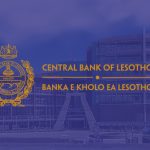
Monetary Policy Committee (MPC) Statement of the 24th July, 2018
July 24, 2018
The Lesotho Money Month Campaign Launched
October 1, 2018The Central Bank of Lesotho Monetary Policy Committee (MPC) held its 73rd meeting on the 25th September 2018. The Committee considered international, regional and domestic economic developments and financial markets’ conditions, in order to determine appropriate monetary policy action to maintain price stability.
The global growth is projected to remain broadly favourable in the short term. However, expansion in the advanced economies is becoming less synchronized, and risks to the outlook are escalating, including rising trade tensions between the US and China. The ongoing discussion about the Brexit agreement with the European Union is also a major near-term risk to the global economy. In addition, uncertainty is increasing among emerging market and developing economies, with growth becoming more uneven, due to rising oil prices, tightening global financial conditions, and changing investor sentiment. These factors have resulted in reduced capital inflows, rising financing costs and exchange rate pressures in countries such as South Africa, with adverse implications for Lesotho’s economy.
Global inflation has maintained a moderate upward trend. However, monetary policy stance in major advanced economies, such as the US, Euro area, Japan, and the UK, remained unchanged between June and August 2018. Similarly, policy rates in the main emerging market economies, including China, India, and South Africa have not changed.
Economic activity in South Africa has remained weak, with quarter-on-quarter contraction registered in the first and second quarters of 2018. On a year-on-year
basis, however, GDP growth was 0.8 per cent in the first quarter and 0.4 per cent in the second quarter. The year-on-year headline inflation rate declined from 5.1 per cent in July to 4.9 per cent in August 2018. Going forward, headline inflation is projected to rise and peak at levels closer to the upper end of the target range of 3-6 per cent. Key factors responsible for upward pressure on inflation include exchange rate depreciation and higher oil prices. However, the repurchase (repo) rate has remained unchanged at 6.5 per cent per annum.
The performance of the domestic economy was mixed during the second quarter of 2018. While the CBL indicator of economic activity (EAI) points towards recovery, developments in the labour market reflect deterioration. Employment in the manufacturing industry has declined, with job losses recorded following closure of some firms. In addition, the number of Basotho migrant workers in the South African mining industry has maintained a steady downward trend.
The annual rate of inflation, measured by the change in the Consumer Price Index (CPI) for all items, rose from 4.1 per cent in July to 4.7 per cent in August 2018. Categories that showed significant inflation increases include food and nonalcoholic beverages; clothing and footwear; housing, water, electricity, and gas; and transport.
The broad measure of money supply (M2) increased by 0.7 per cent between June and July 2018, driven by growth in net foreign assets that was, however, moderated by a reduction in net domestic claims. Total private sector credit maintained a strong upward trajectory, despite registering a modest monthly growth during the review period. On annual basis, the main credit growth drivers were mortgage and personal loans. In contrast, credit to business enterprises remained weak.
The external sector position improved during the review period. Despite a higher current account deficit, surpluses in the capital and financial accounts boosted reserve assets. In this regard, gross international reserves rose from 4 months of import cover in the first quarter to 4.2 months during quarter ending in June 2018.
The government budgetary operations resulted in a surplus of 1.2 per cent of GDP during the first fiscal quarter of 2018/19 (April –June 2018), on account of lower spending relative to mobilised revenue. In the context of Lesotho’s membership of the Common Monetary Area of Southern Africa (CMA), a healthy fiscal position is essential to support the maintenance of adequate international reserves, to bolster the exchange rate parity.
In summary, the Committee noted that, while global growth outlook remained favourable, risks are mounting. As such, the Committee will continue to monitor the global developments and their likely impact on domestic macroeconomic conditions, especially the CBL net international reserves (NIR), with the aim of taking corrective action when needed.
Having considered the above developments, the MPC decided to:
- Decrease the NIR target floor from US$800 million to US$690 million.
- Maintain the CBL rate unchanged at 6.50 per cent per annum.
M. P. Makhetha (PhD)
ACTING GOVERNOR
Contact Person:
Ephraim Moremoholo +266 22232094
emoremoholo@centralbank.org.ls

